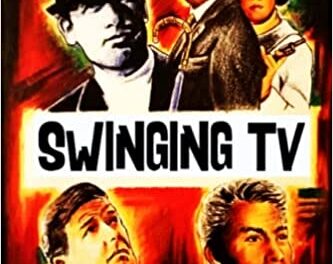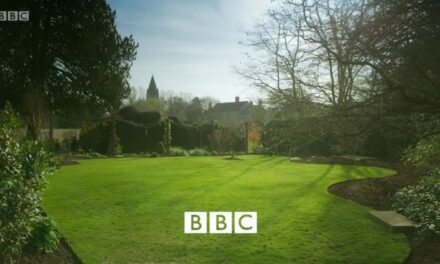
The BBC’s coverage of the Queen’s Jubilee is an example of the megaspectacle that Douglas Kellner (2003) suggests dominates contemporary life. The coverage had all the ingredients of the heightened event and attempted to dazzle and enchant us with the display of iconic objects, costumes, historic buildings, historical events, memorials, extraordinary and ordinary people, staged performances, and through narrativised moments where one is asked to view or comprehend in awe and wonder a spectacular happening that is taking place right before one’s eyes. Blink, or turn away, and something miraculous will have been missed. In carefully edited call and response moments, the Queen gracefully waves at her subjects aboard an elaborated adorned barge and we wave our Union Jacks and roar back our approval; Paul McCartney plays the leitmotif of Live and Let Die and pyrotechnics light up the night sky and the historic Buckingham Palace behind him, and we roar and scream again; and the Red Arrows fly past in perfect synchronisation, trailing behind their engines the colours red, white and blue, and we stand wide-eyed and wondrous at the British excellence before us. Dramatic music almost magically rises up out of the television screen to cement the hyperreality that is being offered to us. The BBC becomes the extraordinary carrier of such sublime enchantments.
Rule Britannia, in image and display and grand gesture if nothing else of substance but the thin sheen of lost objects and Empires. All of Britain’s sons and daughters are asked to take part to mythologise the inclusive nature of British society and to suggest the Queen is adored in all her former colonies – Oz Kylie (dressed as a pearly queen) and Rolf Harris (full of servitude) two heighted embodiments of this internationalist appeal. Because this is also an international or global spectacle; tourist Britain is being marketed on the myth of heritage and royalty and pubs and misty moors and thatched cottages and Crown jewels and Beefeaters and ancient castles and Quality Broadcasting, so this long weekend becomes essentially an extended advert to come to Cool Britannia. Let it rain, as it did for a while, Britain cannot be defeated in its spectacular reincarnation of the branded Nation State.

At the centre of the spectacle is the spectacle of the BBC, Auntie Beeb, a broadcasting institution personified as a family member. BBC cameras are positioned at all the central points, high, low, and in amongst the crowd, while its reporters and commentators both on the ground and in the studio provide one with the heightened language, the higher order abstractions, that turn Great Britain into a wondrous utopia. Lavish metaphors greet the weekend’s proceedings. Clothes, settings, crowd behaviour are turned into hysterical exaggerations. Here in this wonderland there is no recession, no austerity, no one is out of work or is struggling to pay their bills; there is no social division but only unification and togetherness.
We are asked to suspend our disbelief and to forget that the symbolic centre of the nation no longer exists. The re-imagined nation re-imagines its present and everything – for a while – is glorious. The television, the box that used to sit in the corner of the room, is again ghosted into symbolic view, as families are imagined to gather round it to reconnect past and present, to resurrect the traditional British family that is no more. The sale of Roast Beef was reported to hit the roof. The BBC is the only organisation that can offer us such a diabolically loaded hand: it exists at the fabric, the mythic centre, of the British media, so only it (she, this grand old Aunty) can ask us to return to the domestic setting, to be one together again, for this long, long, weekend. As Kellner argues,
Such megaspectacles are part of those phenomena ‘of media culture which embody contemporary society’s basic values, serve to enculturate individuals into its way of life, and dramatize its controversies and struggles, as well as its modes of conflict resolution.
For this long weekend, from Land’s End to the John o’ Groats, British people are seen to unite behind the spectacle of the imagined nation state. This is a type of passion play, there is redemption for non-believers and doubters (anti-royals) if only they get with the programme; and there is a resurrection for the Royals, fading celebrities, has-been singers, second-rate commentators, as they are simultaneously bathed in this enchanted light. The trauma of the recession, of social division, of privilege and class are miracolusly healed, or so it seems. Everyone can have cake. However, like all plays, the drama has to end, and not everyone signs up to be party members.
The BBC came in for some sharp criticism for its coverage of the Jubilee, with over 2,000 complaints received. Stephen Fry tweeted that the four-and-a-half hour Thames River Pageant was “mind-numbingly tedious. This is eggier and cheesier than a collapsed soufflé. Expected better of the Beeb”. Newspaper columnists such as Gillian Reynold for the Daily Telegraph thought that coverage of and commentary on the River Pageant was inane, with nothing of substance to hold the beauty of the images together. One can argue that this was a failure of spectacle – a crack or leak in its ideological centre – that people were able to see through its emptiness and quickly became bored and critical. One could argue in contradiction, that the Pageant wasn’t spectacular enough – that it didn’t have the wonderland aesthetic of the pop festival that followed that night. Rather than an ideological leak, then, it demonstrated how encultured people are into the logic of the megaspectacle. They wanted more, they wanted bread and roses.
The day after the Jubilee celebration, the Guardian reported that unemployed people had been hired as unpaid stewards to line the streets and banks where people would be gathered to celebrate the festivities. A number were assigned to steward the River Pageant that was considered such a dud in terms of the BBC’s coverage. This marked a dramatic punctuation point in the coverage of the event and brought one starkly back to the reality of modern Britain in the age of austerity. After this long, long weekend Britain returned to its harsh truth, a nation divided, living off its past, haunted by its present, struggling even to manufacture an event that would hold the nation together. In these liquid modern times, the centre cannot hold together for very long and the BBC is just a brand. What it needs then to sustain itself is the next spectacle in the megaspectacle event calendar… this weekend the soccer… then Wimbledon… then the Olympics… bread and roses, bread and roses, bread and possibly war….
Sean Redmond is an Associate Professor of Media and Communication at Deakin University, Melbourne, Australia. He writes on stardom and celebrity, science fiction, screen aesthetics, and authorship. His latest book on The cinema of Takeshi Kitano comes out later this year with Columbia University Press.
Sean Redmond, Deakin University, Melbourne
s.redmond@deakin.edu.au





